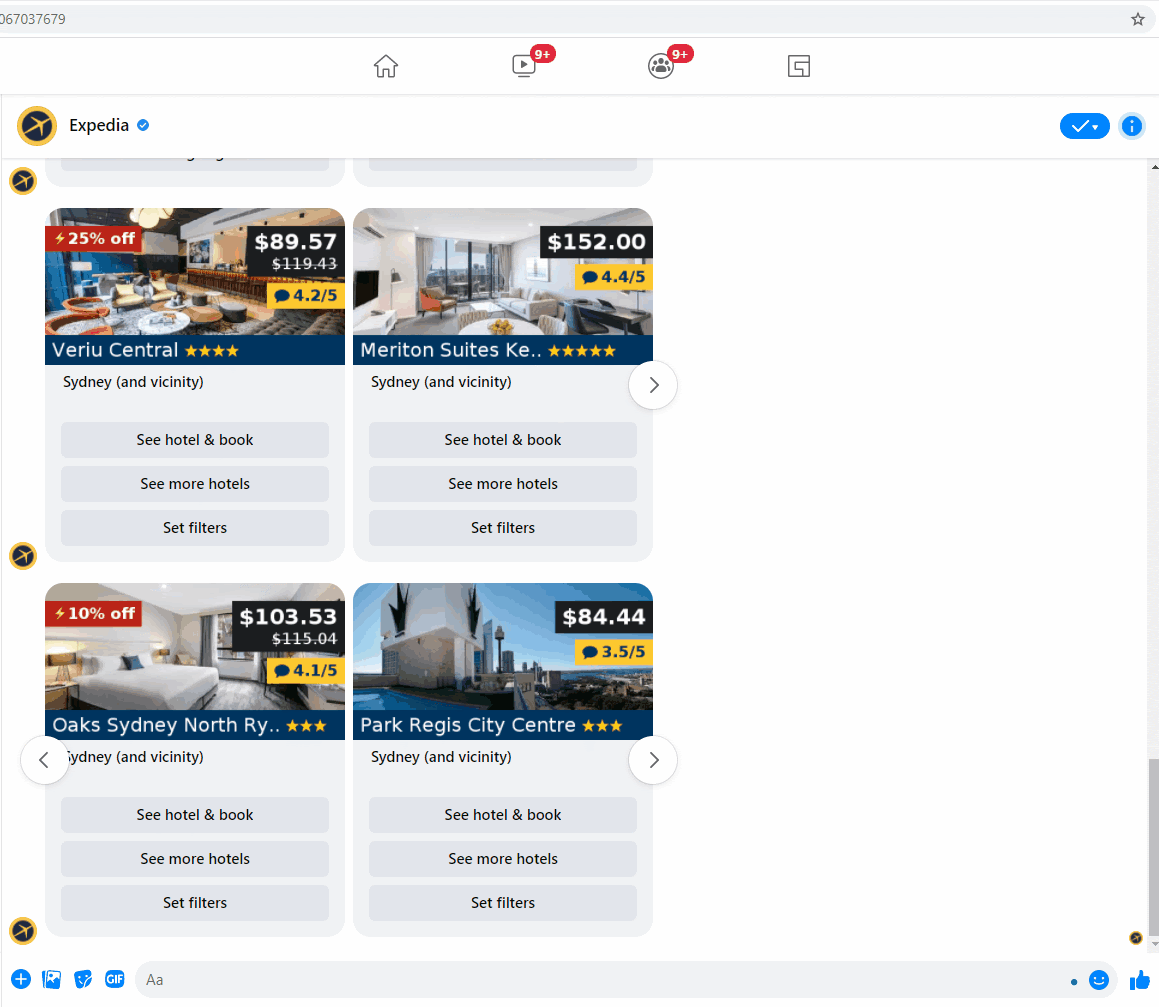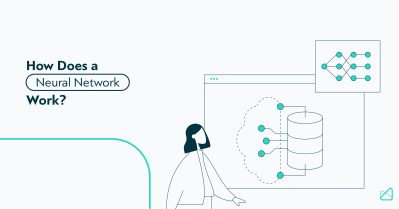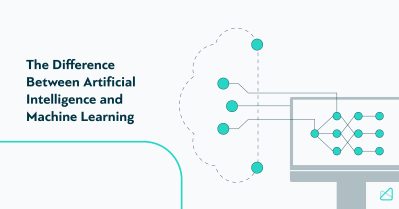6 Examples of How AI is Used in the Travel Industry

AI has made advances in many industries since it was invented. The ever-changing travel industry is also taking advantage of AI to revolutionize the way it operates. As a result, nowadays, travel companies highly leverage AI-powered tools and solutions for various processes from travel planning to landing in the destination.
Here in this article, you will learn how AI has transformed the lucrative travel industry, using example applications. We will also discuss the advances in AI that travel companies should be aware of in order to stay competitive in the industry.
What is AI?
Artificial Intelligence or AI is a branch of computer science where machines and computers simulate human intelligence [1]. In AI, machines are programmed to think like humans and perform tasks that only humans can do. Furthermore, It leverages the problem-solving and decision-making capabilities of human beings [2].
AI is not just a single technology but a rapidly evolving collection of technologies like deep learning, machine learning, and expert systems. For example, AI systems such as self-driving cars and space-exploring robots learn from the experience. Today there is ongoing research on the applicability of more advanced AI technologies like Generative Adversarial Networks and Edge AI in various industries.
The role of AI in tourism has become increasingly significant, transforming everything from travel planning to the customer experience at the destination. By simulating human intelligence, AI provides innovative solutions that enhance operational efficiency and enrich the traveler’s experience, highlighting the importance of adopting these technologies in the tourism industry.
How is AI Changing the Travel Industry?
Currently, AI has been incorporated into many areas of the travel and tourism industry, making lives easier for travelers around the globe. For instance, there are some widely used forms of AI in airports these days, such as facial recognition systems and airport security scanning devices.
Next, we will discover how AI applications are used in the travel industry using real-life examples.
Incorporating AI in tourism has not only revolutionized how tour operators interact with their clients but also how they personalize offerings and services. Virtual assistants and chatbots are prime examples of how AI facilitates more efficient and personalized booking processes, offering travelers options that best suit their needs and preferences.
AI Assistants For Travel Booking
Thanks to AI, travelers no longer need to visit travel agencies to book flights or search for accommodation. AI assistants and Intelligent chatbots have now taken the place of travel agents allowing travelers to book flights and accommodations and hire vehicles online. These chatbots are deployed in social media sites like Facebook messenger, skype, WhatsApp, and Viber to offer users a more personalized booking experience.

The travel reservation giants like Booking.com, Skyscanner, and Expedia are utilizing such chatbots in their operations. Usually, you will be prompted to start the conversation with a chatbot by entering the details of your intended journey. Then the bot will search through the booking sites and find you the best deal. For example, let’s see how Skyscanner uses its chatbot [3]
Skyscanner Chatbot
When the Skyscanner chatbot is activated on Facebook or Whatsapp, users can enter their destination to start the conversation with the bot. If you are unsure where to go, just type ‘anywhere,’ and then the bot will provide you with suggestions, including the price for each destination using real-time search trends.
When you tell the chatbot the travel date, it will show you the cheapest flights to your destination. Then the bot will redirect you to the official Skyscanner website to complete the booking upon selecting to book a flight. Moreover, the Skyscanner chatbot allows you to receive price alerts for a flight. Skyscanner reported that it had surpassed one million traveler interactions with the application in February 2018[4]. Refer to the following videos on how this robot works.
Robots For Face-to-Face Customer Services
Robots are gradually infiltrating customer services in the travel industry, avoiding the need for human agents. Gone are the days when you had to wait in a queue to get information or try to find your gate in a busy terminal. The reason is that some popular airports and hotels have now employed robots to assist you in such situations. One example is the robot in London Heathrow airport that guides passengers in terminals [9]
According to a report published by Vero Solutions, it is expected that robots will replace humans in the check-in process by 2030 [5]. The Henn-na Hotel in Nagasaki is the worlds’ first hotel fully staffed by multi-lingual robots primarily used for check-in and checkout processing. Another innovative AI solution is ‘Connie,’ the robot deployed in the hotel Hilton McLean in Virginia.
The use of robots in the tourism sector illustrates the advancement of AI in tourism, providing innovative customer services. These robots not only streamline the check-in and check-out process at hotels and airports but also act as concierges, enhancing guest interaction with immediate responses and personalized assistance.
Connie, The Robot Concierge at Hilton
Connie uses domain knowledge of the IBM Watson AI program and Wayblazer to answer human queries related to hotel features and local attractions while providing recommendations. It uses Natural Language Processing to understand the sentences when someone talks to them.
Furthermore, Connie can move its arms and legs to show directions to guests and express different human emotions by lighting up with different colors. It continuously learns from human interactions and fine-tunes its capabilities. It is indeed an enjoyable experience for guests and particularly useful in this Covid-19 era to ensure customer safety.
AI-Driven Applications For Flight Forecasting
The application of AI in tourism extends to flight price prediction, where advanced algorithms analyze historical price patterns to offer travelers the best time to book. This innovation not only optimizes the booking experience for the user but also allows airlines and hotels to adjust their pricing strategies in real-time.
Imagine an innovative technology that helps you find the best flight price at the right time and gives you a heads-up on future flight prices. Some companies have made that useful feature a reality by introducing AI-driven smart price prediction applications into the industry. Hopper is an example of such an application used by travelers to get to that facility.
Hopper
Hopper is based on machine learning algorithms. It uses a flight database to predict optimal hotel prices and flights while offering users personalized recommendations about the most suitable time to book a flight. When a traveler is tracking a flight, it provides recommendations on whether he/she should buy it now or wait for a better price.
Hoppers’ extensive database consists of trillions of historic flight prices, and live price feeds to work out recommendations. It is reported that this app has sold more than $600 million worth of flight tickets since its invention [6]. Hotels and airlines use these forecasting applications to modify rates according to consumer demand.
Data Analytics To Identify Valuable Insights
A huge amount of data is being generated every second throughout the travel industry. These data can be hidden gems for travel companies if they can interpret them effectively and identify what has worked well for customers. Travel companies leverage AI to sort through these vast data sets quickly and accurately, which would otherwise become a daunting task for humans alone.
For Instance, consider the use of AI in the Dorchester Collection hotel to conclude its collection of customer data. [7]
Data Analysis in Dorchester Collection Hotel
The Dorchester Collection hotel has processed and analyzed customer feedback surveys, customer reviews, and online polls using its AI platform Metis to determine its overall performance. They have discovered the lack of loyalty to their hotels through such analysis. Businesses get the opportunity to devise better solutions that fulfill customer needs by identifying such trends of customers.
Sentiment Analysis Through Social Media
Social media is listening to you all the time. Airlines and hotels are leveraging this technology coupled with AI to identify the sentiment of travelers through social media and how it relates to the traveler’s journey. For instance, if a customer posts about a particular flight delay on social media expressing his or her frustration, a listening tool will analyze it and interact with the customer in real time. Mindtree’s PaxPulse uses this sentiment analysis to deliver a better customer experience to its travel partners.
Mindtree’s PaxPulse
Mindtree’s PaxPulse is a social Intelligence and Recommendation Platform designed for the airline industry. It uses Mindtree’s pre-built classifiers, algorithms, and machine learning frameworks. When a particular passenger posts on social media about his travel partner, its smart algorithms process this sentiment and provide a certain recommendation to resolve passenger concerns.
Room Mapping + Dynamic Price Tracking
Here at HotelMize, we are using AI for our Room Mapping to track dynamic prices for the same room across multiple suppliers. When adding AI also to predict dynamic prices for a specific room, we get a precise idea of when and for how long the price will remain the cheapest it can.
AI Trends in Travel Industry For 2021 and Beyond
The International Air Transport Association (IATA) estimates that air passengers will increase from 4 billion to almost 8 billion by 2036 [8]. However, the unexpected Covid 19 pandemic has utterly impacted the travel industry. Now let’s see what AI trends would impact the future of the travel industry.
Smart Baggage Handling
Airports are handling millions of bags each year. The airport IT specialist SITA is harnessing the potential of AI for airport baggage handling systems. Airports can be fully automated with robotics and AI in the future, and lost luggage will be handled smartly. There are already implemented AI solutions in some airports with pilot projects. For instance, the Eindhoven Airport has successfully used AI-powered luggage handling systems without baggage labels.
Robots and Voice Assistants
As the Covid-19 pandemic has hit the travel industry hard, experts are looking for more sophisticated contactless mechanisms for check-in and checkout processes and assisting passengers with general inquiries. Therefore self-service can become the norm in the post-pandemic era. Voice assistants are already being used heavily in guest rooms, ships, and airport security. With the prevailing situation, the industry can expect the rise of both robots and voice assistants.
Personalized Travel Planning
Travel planning is expected to change in the coming years with the tendency to increase mobile applications that provide personalized end-to-end travel planning. These applications may include new capabilities like tracking passenger health by integrating with wearable technologies and recommending safe travel zones.
Conclusion
In Conclusion, the travel and tourism industry has seen a surge of AI applications on every spectrum. In this article, we have discussed some popular applications of AI and how they operate. As discussed, be it by air or sea, there are potential ways passengers and travel companies can utilize AI to make the journey an efficient and smooth one while maintaining customer satisfaction at a higher level.
Bibliography
[1]https://mize.tech/blog/this-is-the-difference-between-artificial-intelligence-and-machine-learning/
[2] https://www.ibm.com/cloud/learn/what-is-artificial-intelligence
[4]https://econsultancy.com/skyscanner-chatbots-pass-one-million-unique-traveller-interactions/
[5]https://www.cnbc.com/2020/01/10/meet-the-robots-that-may-be-coming-to-an-airport-near-you.html
[6] https://digital.hbs.edu/platform-digit/submission/hopper-using-ai-to-plan-your-next-vacation/
Subscribe to
our newsletter
Yay! You are now
subscribed to our
newsletter
Mize is the leading hotel booking optimization solution in the world. With over 170 partners using our fintech products, Mize creates new extra profit for the hotel booking industry using its fully automated proprietary technology and has generated hundreds of millions of dollars in revenue across its suite of products for its partners. Mize was founded in 2016 with its headquarters in Tel Aviv and offices worldwide.
Related Posts

How does a neural network work? Implementation and 5 examples
12 min. Artificial neural networks can be considered as one of the popular subject areas in computer science. The reason behind that is their ability to perform critical artificial intelligence-related tasks such as image classification and recognition, credit card fraud detection, medical and disease recognition, etc. What is a neural network? Simply said, a neural […]

This is the Difference Between Artificial Intelligence and Machine Learning
11 min. Are machine learning and artificial intelligence the same thing? The Fourth Industrial Revolution, or the new era of technology, is driving rapid advancements in the development of Artificial Intelligence and machine learning as a prominent part of its set of technological developments. Klaus Schwab, the founder and chief executive of the World Economic […]
